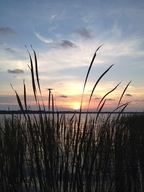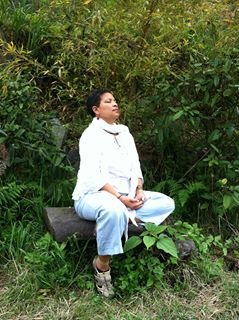
https://www.youtube.com/watch?v=NDKIs0v120s
September is Alzheimer’s Awareness month, and the statistics are frightening: This disease affects over 4 million people in the US alone, with a projected 14 million in the next 50 years as the Baby Boomers age! But are we aware? Or are we aware only when it becomes personal for us? This month’s post is dedicated to the millions of families and care-providers who are impacted by the effects of Alzheimer’s Disease every hour of every day. It is a little bit more clinical than my usual posts, but it is very timely, and yes, the Elders speak…..
Pathophysiology:
Alzheimer’s Disease is caused by a degeneration of brain tissue as levels of acetylcholine decrease (a neurotransmitter in the brain crucial to memory, cognitive thinking & the ability to concentrate), and amyloid plaques develop in the brain. It affects parts of the brain that controls thought, memory & language. It is more prevalent in (but not limited to) females over age 60, and is the 6th leading cause of death in the United States (http://www.alz.org/facts/downloads/facts_figures_2015.pdf). There is an associated link with a high fat diet, sedentary lifestyle, genetics, nutrient deficiencies, depression and brain injury amongst other things. The cause is not known, and even though it’s associated with the aged, let me stress: it is NOT a normal part of the aging process!
Symptoms:
Patients may progress through the stages of Alzheimer’s from showing early warning signs to severe Alzheimer’s where they lose bowel and bladder control requiring full-time care. Unfortunately the symptoms of Alzheimer’s are not characteristic only for this disease and may be indicative of other conditions, so I would caution the reader to consult your physician for appropriate diagnostic testing to rule out other pathology. Patients may demonstrate any of the following (list is not inclusive):
◦ Disorientation to time & place, getting lost in familiar places, mood changes, behavior changes, personality changes, difficulty finding the right words, loss of memory, cognitive dysfunction, decreased judgment, increased agitation, drooling, decreased focus or attention.
◦ Difficulty performing familiar tasks, misplacing/finding things, impaired activities of daily living (ADLs), disturbed sleep pattern (often becoming worse as the day progresses – a term we sometimes call “sundowning”). Here is a downloadable PDF of 10 early warning signs of Alzheimer’s (source: www.alz.org from the Alzheimer’s Association national site): http://www.alz.org/national/documents/checklist_10signs.pdf
Diagnostic Testing:
Unfortunately there is no definitive diagnostic test for Alzheimer’s except for autopsy, and so we look instead to do a differential diagnosis to rule out other causes (such as tumors, strokes, thyroid problems, toxicities, or blood vessel diseases). It may take an entire team of neurologists, psychiatrists, psychologists and geriatricians before a probable diagnosis of Alzheimer’s can be made. To determine a ‘Probable Diagnosis of Alzheimer’s”, various tests may be ordered including CT scan, MRI, EEG or labs such as CBC, CMP or homocysteine levels, along with neurologic or psychological testing.
Western Medicine:
Pharmaceutical options may include cholinesterase inhibitors (like Aricept, Razadyne, Exelon patch), Namenda, anti-depressants (such as Prozac or Zoloft), antipsychotics (such as Abilify, Haldol, Zyprexa), and anti-anxiety meds (e.g. Ativan). Your physician will best advise you as to a regime that will help to manage the condition.
Chinese Medicine:
There is strong clinical support that Chinese Medicine can and does play a role in the complementary role of preventing and treating Alzheimer’s Disease. In Chinese Medicine, we say the brain is nourished by the Kidneys (which is a major contributor to our Essence/Life Force), but its cognitive functions (such as memory, wisdom & cognition) are regulated by the Heart, so we may use Heart & Kidney tonics to help with this condition. There is also an emotional component to Alzheimer’s (the Liver is associated with our emotions), and some degree of “Phlegm stagnation” (this is not the actual “Loogies” phlegm that we think of – like when you cough up sputum or mucus from your lungs. It’s described instead as a “consequence of the internal disruption of the body’s fluid metabolism… and is not visible”). As such, our treatment goals in Chinese Medicine also include methods and herbal formulas that tonify Qi, Yin or Yang, suppress Liver Qi and transform Phlegm. Acupuncture has been shown to increase blood circulation to the brain, improve mood and cognitive skills such as memory & concentration, manage pain and stress, increase certain neurotransmitters in the brain, and can even aid in stimulating nerve regeneration(1, 2).
Management Considerations:
The following is a small list of some of the products we may consider when working with patients with cognitive impairment conditions such as Alzheimer’s (*Author’s note: THIS DOES NOT CONSTITUTE MEDICAL ADVICE & is for educational purposes only. Please consult your physician for accurate diagnosis & management of any condition!):
◦ Supplements:
Vitamin C & E, Vitamin B1 (Thiamine), Vitamin B12, Inositol (Vitamin B8) , DHEA (an adrenal hormone whose levels declines with aging), growth hormone, melatonin, anti-oxidants, fish oils (Omega-3 fatty acids, Taurine (an amino acid found in large amounts in the brain & heart and food sources such as meat & fish), Acetyl L-Carnitine (derivative of another amino acid - Lysine), CoQ10, and Zinc.
◦ Nature’s finest botanical herbs:
Research continues into the benefits of the following plant-based supplements:
- Turmeric (for its anti-inflammatory properties)
- Rosemary (improves memory)
- Cinnamon (great antioxidant)
- Gingko Biloba (said to promote blood circulation to the brain & improve memory)
- Huperzine A (“Chinese Club Moss” - acts as an anti-cholinesterase inhibitor to help increase levels of acetylcholine in the brain)
- Rhodiola (Hong Jing Tian)
- Periwinkle (Vinca minor/Vinpocetine - enhances brain circulation and oxygen utilization and other neuroprotective and anti-ischemic effects)
- Ashwagandha (aka “Indian ginseng/Withania somnifera)
- Polygala tenuifolia (Yuan Zhi)
- Salvia (Dan Shen/ Salvia miltiorrhiza)
◦ Dietary recommendations:
Try switching to an anti-inflammatory diet. Bulk up on fresh fruits, veggies, whole grain nuts, seeds and foods rich in magnesium. Foods such as black beans, black sesame seeds, kelp, shitake & black ear mushrooms help support Kidney energy. Adding green tea and chlorella to the diet can also be beneficial. As much as possible try to avoid milk, dairy, artificial sweeteners, processed foods and products containing aluminum.
◦ Lifestyle Changes:
Exercise daily to improve circulation & feeling of well-being. Staying active and involved, even just socializing with others is a simple way to slow the progression of the disease. Mind games such as SudokuÒ, crossword puzzles, and board games keep the brain engaged. Encourage mental activities to keep the mind active. The national website for Alzheimer’s has a great link for how to care for the patient through the various stages of the disease, and also includes suggestions for the family as well as caregivers: http://www.alz.org/facts/downloads/facts_figures_2015.pdf.
Hope this was of help to you. For further information on Alzheimer’s, please visit the websites at the links provided below:
Alzheimer’s Associations:
www.alz.org
www.alzfdn.org
www.alzheimers.gov
www.alzheimers.net
Family Caregiver Alliance:
https://www.caregiver.org/caregiving-and-sibling-relationships-challenges-and-opportunities
Foods to help fight Alzheimer’s:
http://www.alzheimers.net/2013-10-15/superfoods-that-fight-alzheimers/
Foods that may contribute to Alzheimer’s:
http://www.alzheimers.net/2014-01-02/foods-that-induce-memory-loss/
I now leave you with this touching tribute to all those suffering from Alzheimer’s Disease:
Do Not Ask Me to Remember
Do not ask me to remember,
Don’t try to make me understand,
Let me rest and know you’re with me,
Kiss my cheek and hold my hand.
I’m confused beyond your concept,
I am sad and sick and lost.
All I know is that I need you
To be with me at all cost.
Do not lose your patience with me,
Do not scold or curse or cry.
I can’t help the way I’m acting,
Can’t be different though I try.
Just remember that I need you,
That the best of me is gone,
Please don’t fail to stand beside me,
Love me ’til my life is done.
- Owen Darnell
References:
1. Emerson Lombardo N, et al. Acupuncture to treat anxiety and depression in people with Alzheimer’s disease and with vascular dementia: a pilot feasibility and effectiveness trial. Presented at World Alzheimer’s Conference, Washington DC, July 9-18, 2000 and at Wellesley College Center for Research on Women, Wellesley, Massachusetts, June 7, 2000.
2. Kao H. Acupuncture enhancement in clinical symptoms and cognitive-motor abilities of the Alzheimer’s disease patients. Presented at World Alzheimer’s Conference, Washington DC, July 9-18, 2000.
3. Szatmari SZ1, Whitehouse PJ. Cochrane Database Syst Rev. 2003;(1):CD003119. Vinpocetine for cognitive impairment and dementia.
4. Kelley, BJ & Knopman, DS. Neurologist. 2008 Sep; 14(5): 299–306. Alternative Medicine and Alzheimer's Disease.
5. Sun et al. Translational Neurodegeneration 2013, 2:6 Traditional Chinese medicine: a promising candidate for the treatment of Alzheimer’s disease.
6. Ping Liu et al. “History and Experience: A Survey of Traditional Chinese Medicine Treatment for Alzheimer’s Disease,” Evidence-Based Complementary and Alternative Medicine, vol. 2014, Article ID 642128, 5 pages, 2014. doi:10.1155/2014/642128.
7. L. Yu et al. “Chinese herbal medicine for patients with mild to moderate Alzheimer’s disease based on syndrome differentiation: a randomized controlled trial,” Zhong Xi Yi Jie He Xue Bao, vol. 10, no. 7, pp. 76–82, 2012.
8. Xu, Yi et al. “Changes of brain myelin sheath structure and myelin basic protein content induced by amyloid β peptide (Aβ) and effect of GETO on these changes.” Chinese Journal of Rehabilitation Theory & Practice 12 (2005): 004.
9. Tian, Jinzhou, et al. “P4-302: Effect of GETO extract on expression of ChAT and NGF in the brain with AD model.” Alzheimer’s and Dementia 2.3 (2006): S605-S606.
10. Chen L, Huang J, Xue L. [Effect of compound Polygonum multiflorum extract on Alzheimer’s disease]. Zhong Nan Da Xue Xue Bao Yi Xue Ban. 2010 Jun;35(6):612-5. doi: 10.3969/j.issn.1672-7347.2010.06.012. Chinese. PubMed PMID: 20622335.
11. Hou DR et al. “Effect of polygonum multiflorum on the fluidity of the mitochondria membrane and activity of COX in the hippocampus of rats with Abeta 1-40-induced Alzheimer’s disease”. Zhong Nan Da Xue Xue Bao Yi Xue Ban. 2008 Nov;33(11):987-92.
12. Xu Yi et al. “Effect of GETO on expression of protein in postsynaptic dense zone of Alzheimer’s disease model rats”. Zhongguo Zhong Xi Yi Jie He Za Zhi. 2006 Jan;26(1):54-7.
13. Yu L et al. “Chinese herbal medicine for patients with mild to moderate Alzheimer disease based on syndrome differentiation: a randomized controlled trial”. Zhong Xi Yi Jie He Xue Bao. 2012 Jul;10(7):766-76.

